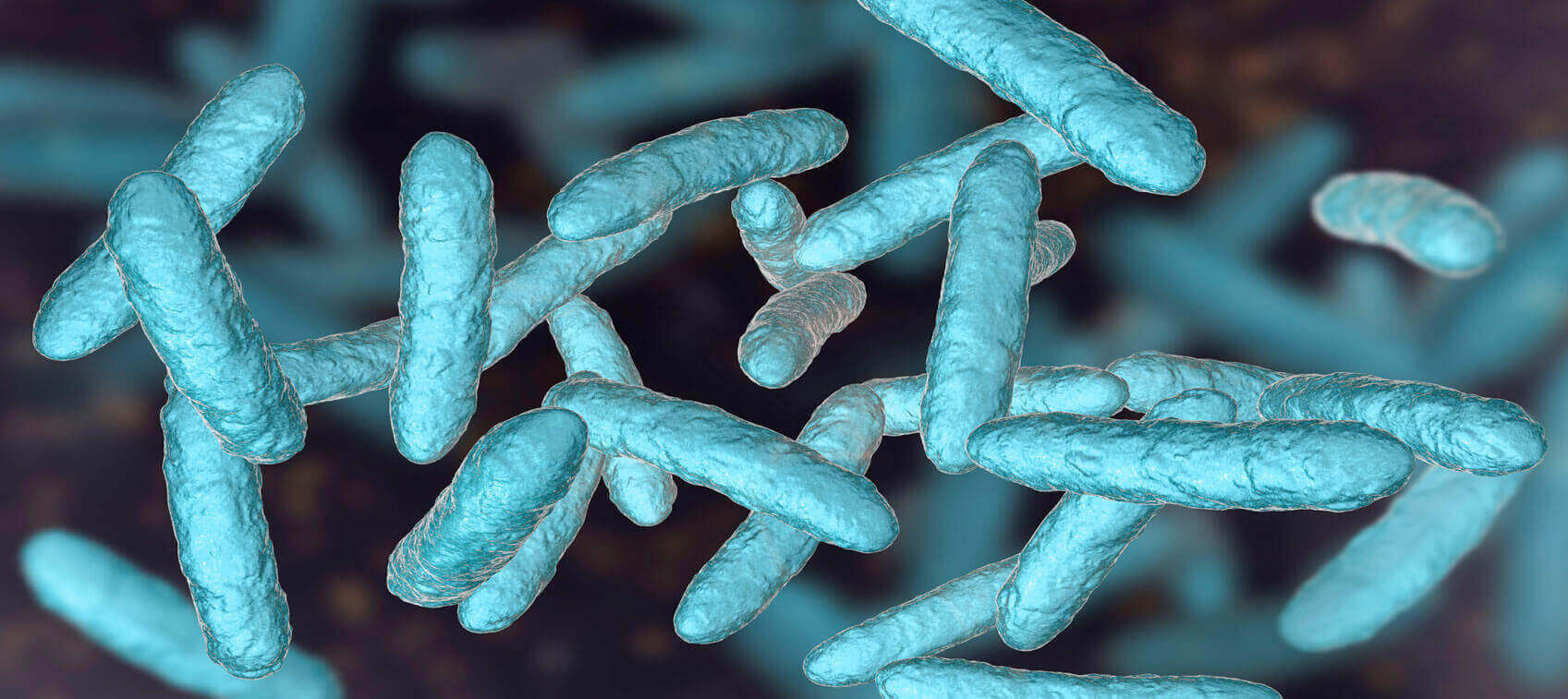
Understanding the benefits of various strains of probiotics and how they affect digestive health is essential in order to properly evaluate which probiotic supplement is best for you.
This table identifies a number of common probiotic species and the benefits they confer. Refer to it as you weigh the pros and cons of different products.
|
Lactobacillus Species The predominant and most important bacteria that reside in the small intestine are the Lactobacillus species. These probiotic species are responsible for producing lactase, the enzyme required to break down lactose (the sugar in milk). They also collectively ferment carbohydrates in the gut, producing lactic acid as result of this process. Lactic acid helps create an acidic environment in the digestive tract, which discourages many unwanted microorganisms that thrive in an alkaline environment. Lactic acid also increases absorption of minerals such as calcium, copper, magnesium, and iron. |
||
| Strain Name | What It Does | What It Supports |
| L. acidophilus | L. Acidophilus is, in my opinion, is the most important strain of the Lactobacillus species. This bacterium colonizes most densely in the small intestine, where it helps maintain the integrity of the intestinal wall, ensure proper nutrient absorption, and support healthy overall digestive function.Research shows that acidophilus also can help ease occasional digestive discomfort. In a double blind placebo controlled study, patients taking this probiotic strain experienced significantly more relief from their symptoms than patients taking a placebo. A separate meta-analysis found that probiotics containing acidophilus help to alleviate occasional diarrhea, and a third study found that supplements containing both acidophilus and B. bifidum help modulate the response of microflora in the intestines to the effects of antibiotics.Additional preliminary research shows that acidophilus may help boost immune system activity and support vaginal health in women. |
|
| L. fermentum | This strain of probiotics, which has been found in the probiotic foods sourdough and kimchi, produces superoxide dismutase and glutathione, both powerful antioxidants that help neutralize some of the toxic products made in the gut during digestion. L. fermentum has also been isolated as exhibiting activity against foodborne pathogens. |
|
| L. plantarum | L. plantarum is known for its ability to produce hydrogen peroxide. The body uses hydrogen peroxide as a defense against bacteria consumed in food, as well as other microorganisms. Research has also found this strain to be effective in helping support immune function in healthy adults. |
|
| L. rhamnosus | This strain of probiotic is known for its ability to survive passage through the GI tract and is thought to be among the best Lactobacillus strains for vaginal health. It also loves to travel to foreign places; that is, a review of research on probiotics finds that Americans traveling from New York, NY, to developing countries and taking L. rhamnosus had a 3.9 percent rate of diarrhea, compared to a 7.4 percent rate for those not taking a probiotic.A second review of research concluded that L. rhamnosus may help improve vaginal and urinary health and decrease vaginal irritation. |
|
| L. salivarius | L. salivarius is somewhat unique among probiotic strains in that it is capable of growing in less than ideal conditions, including environments high in salt, and with or without oxygen. It is found in the oral cavities (mouth, throat, and sinuses), intestines, and vagina, but grows best in the small intestine.Research has shown that people taking L. salivarius had increased markers of immune activity. An additional study found that supplementing with L. salivarius helps to prevent the colonization of undesirable bacteria. |
|
| L. paracasei | L. paracasei is a robust strain found in the small intestine. It may also colonize in the colon if taken along with milk protein, which increases its resistance to stomach acid. This probiotic strain has the unique ability to support liver function. A prospective randomized study found that supplementation with a mixture of fiber and probiotics, which included L. paracasei, lowered urine pH and improved liver function in half of subjects. |
|
| L. gasseri | Relatively new, this probiotic strain is among the species of Lactobacilli predominantly linked to microflora in the vagina. Women with vaginal discomfort tend to have lower levels of L. gasseri than women with normal vaginal health.L. gasseri also supports digestive health. Research shows that supplementation with a combination of L. gasseri and B. longum helps limit occasional diarrhea in adults. |
|
| L. reuteri | L. reuteri colonizes in both the intestine and oral cavity. In human trials, it has been shown to support digestive, oral, and immune health. |
|
|
Bifidobacterium Species Billions of Bifidobacterium line the walls of the large intestine (colon) and help ward off invasive harmful bacteria and other microorganisms, including yeast. Like the Lactobacillus strain, Bifidobacterium produce lactic acid, which provides up to 70 percent of the energy required by cells that line the intestinal wall, enhancing the natural protective barrier in the gut. Lactic acid also helps keep the pH of the large intestine acidic to discourage the growth of other bacteria. Additionally, this lower pH environment facilitates the absorption of minerals such as calcium, copper, magnesium, iron, and zinc. Bifidobacterium also produce B-complex vitamins and vitamin K.As we age, the numbers of Bifidobacterium found lining the large intestinal wall naturally begins to decline. |
||
| Strain Name | What It Does | What It’s Good For |
| B. bifidum | This probiotic strain is among the first to colonize in the intestines of babies and continues throughout life to be one of the main groups of good flora found in the large intestine. (It can also be found in the small intestine.) In addition to helping promote bacterial balance, it prevents the growth of unwanted bacteria, molds, and yeasts by naturally adhering to the intestinal mucosa better than other bacterial strains.B. Bifidum assists in the breakdown of complex carbohydrates, fat, and proteins during digestion. It also produces enzymes that break the larger molecules down into smaller components that the body can more efficiently use.A meta-analysis of double blind human trials found that B. bifidum is one of the probiotic strains that can help alleviate occasional diarrhea, especially when traveling. |
|
| B. longum | B. longum is one of the more common strains of Bifidobacteria found in the GI tract. Its digestive benefits stem from its ability to break down carbohydrates and to scavenge and neutralize everyday toxins found in the gut. Preliminary research suggests that the antioxidant properties of this probiotic strain include the chelation of metal ions—especially copper—and the scavenging of free radicals.It is also supportive of immune health. Elderly patients administered B. longum showed heightened immune function for 20 weeks after discontinuing supplementation. |
|
| B. infantis | This probiotic strain is the largest population of beneficial bacteria in babies. The amount of B. infantis in our guts decline as we age, but it remains an important part of our microflora. Supplementation with B. infantis has been shown to decrease bloating and bowel movement difficulty. |
|
|
Bacillus Species Bacillus bacteria are rod-shaped, spore-bearing bacteria that produce lactic acid Because it is a spore-bearing bacterium, it is highly resistant to heat, moisture, and light, making it highly resistant to stomach acid, and readily colonizes in the small intestine. Bacillus also resides in the body longer than other bacteria and is excreted slowly. |
||
| Strain Name | What It Does | What It’s Good For |
| B. coagulans | B. coagulans, like other lactic acid–producing bacteria, produces enzymes that assist in the digestion of lactose. It also improves the body’s ability to use calcium, phosphorus, and iron, and stimulates both gastric juices and gastric motility.This strain also supports vaginal health in women. One study shows that women who took B. coagulans daily saw improvements in their vaginal pH level, with 91 percent of reporting relief from vaginal discomfort. |
|
| Streptoccocus Species | ||
| Strain Name | What It Does | What It’s Good For |
| S. salivarius K12 | This probiotic strain is found in the oral cavity’s mucus membranes and is known for its ability to produce BLIS (bacteriocin-like inhibitory substances), which inhibit the ability of other undesirable bacteria to grow.Research has found that the 10 percent of the population who naturally carry BLIS-producing strains of oral bacteria have significantly fewer sore throats. Studies have associated S. salivarius K12 with better ear health in children, “significantly” reduced dental plaque scores, increased levels of interferon gamma in saliva (an immune marker), and significant reduction in volatile sulphur compounds that cause bad breath. |
|
| S. Salivarius M18 | S. salivarius M18 is also found predominantly in oral mucosa and, like the K12 strain, it also produces BLIS. S. salivarius M18 is most active in specific areas on the gums and teeth. S. salivarius M18 also promotes a healthy inflammatory response in the gums. |
|


